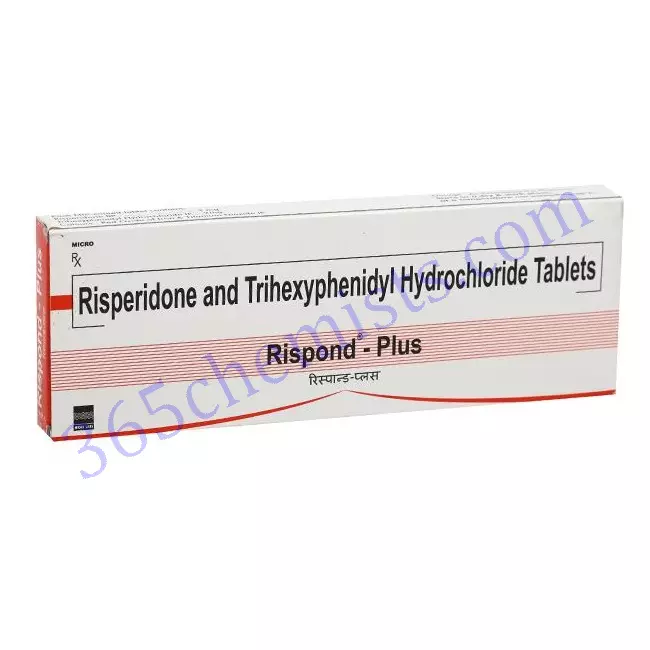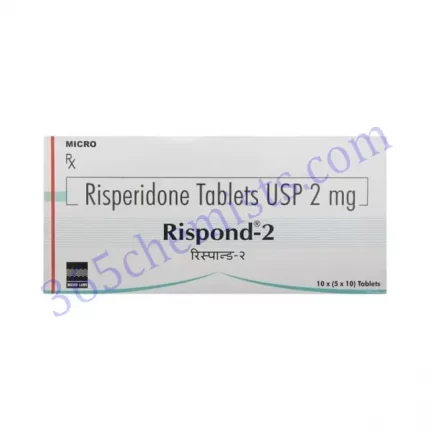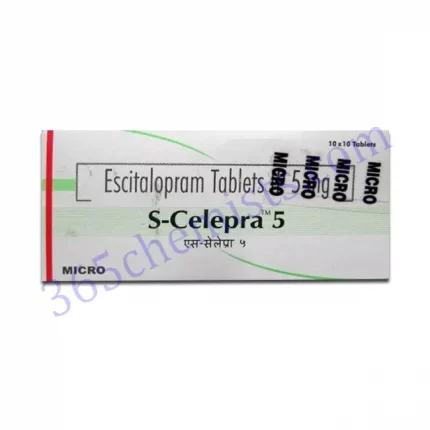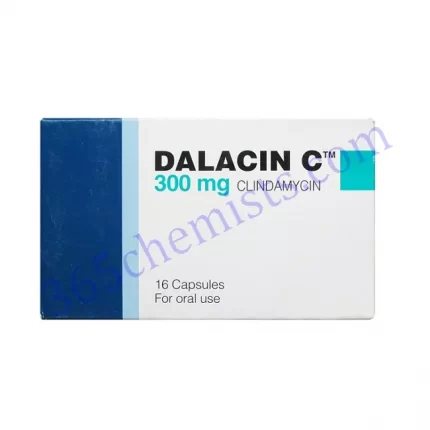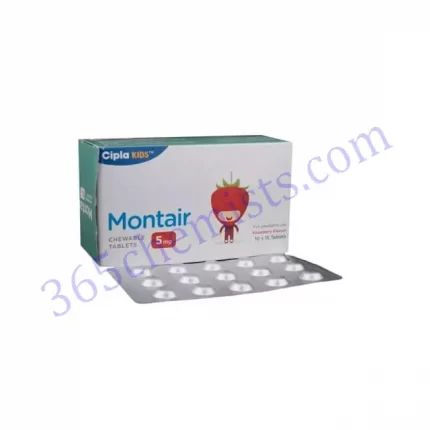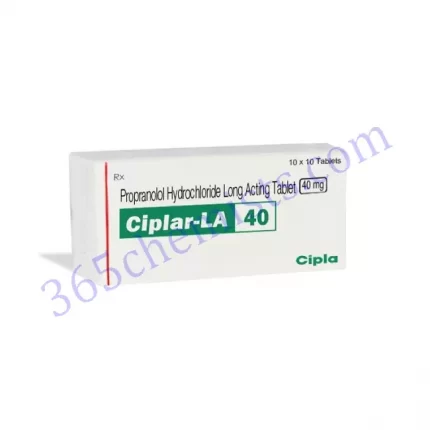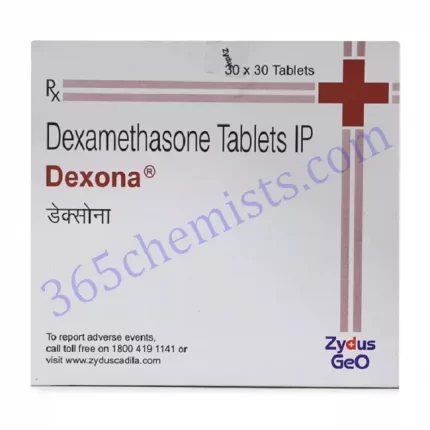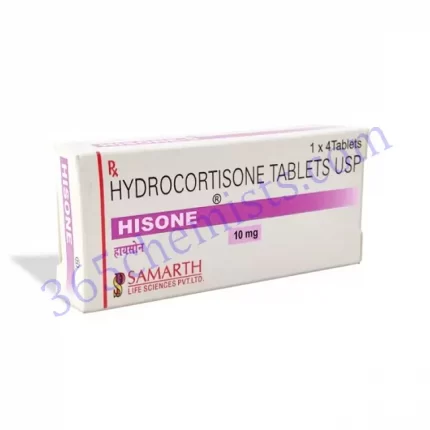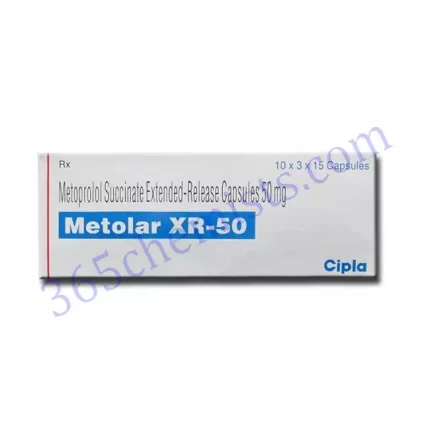Rispond-Plus Tablet: Effective Combination of Risperidone and Trihexyphenidyl for Psychiatric Disorders
Rispond-Plus Tablet is a potent medication that provides effective treatment for a variety of psychiatric disorders by combining two active ingredients, namely risperidone and trihexyphenidyl. The medication comes in tablet form. Risperidone, an antipsychotic agent of the second generation, and trihexyphenidyl, a drug that acts as an anticholinergic, work together in a synergistic manner to relieve symptoms that are associated with mental illnesses. This detailed explanation aims to provide helpful information regarding the Rispond-Plus Tablet’s composition, mechanism of action, indications, dosage, potential adverse effects, and safety precautions.
Composition and Mechanism of Action:
As its active ingredients, the Rispond-Plus Tablet has 3 milligrammes of risperidone and 2 milligrammes of trihexyphenidyl. Risperidone has an antagonistic effect on the receptors of a number of different neurotransmitters, including serotonin (5-HT2A and 5-HT2C), dopamine (D2), alpha-adrenergic, and histaminergic receptors. Risperidone is able to help reduce the positive and negative symptoms of psychiatric disorders such as schizophrenia and bipolar disorder because it is able to modulate the activity of the receptors that are involved in these conditions.
Trihexyphenidyl, on the other hand, is an anticholinergic agent that blocks the action of acetylcholine in the central nervous system. This is how it achieves its therapeutic effect. It helps in reducing the symptoms of extrapyramidal disorders such as parkinsonism, which can occur as a side effect of antipsychotic medications. These disorders can be caused by side effects of antipsychotic medications.
Indications and Usage:
The most common indication for prescribing Rispond-Plus Tablet is for the treatment of schizophrenia. Schizophrenia is a persistent and severe mental disorder that is characterised by distorted thinking, hallucinations, delusions, and disorganised behaviour. The acute manic episodes that are associated with bipolar disorder, a mood disorder that is characterised by alternating periods of mania and depression, can also be effectively managed with this treatment method.
In addition, the Rispond-Plus Tablet can be used to treat other psychiatric conditions, such as schizoaffective disorder, which is a condition that combines characteristics of both schizophrenia and mood disorders. It is also useful in the treatment of behavioural disturbances in patients with dementia, such as aggressiveness and agitation, which can be beneficial to patients.
Dosage and Administration:
It is recommended that the dosage of Rispond-Plus Tablet be individualised for each patient based on the severity of their symptoms, how well they respond to treatment, and whether or not they are taking any other medications at the same time. It is extremely important to take the medication exactly as directed by the healthcare professional, both in terms of the dosage and the length of time.
The initial dose that is recommended for adults is one tablet of Rispond-Plus (Risperidone 3 mg/Trihexyphenidyl 2 mg) every day. This is the recommended starting dose. To achieve the desired therapeutic response, the dosage may be gradually increased while under the supervision of a medical professional. However, the maximum daily dose of risperidone should not exceed 8 mg, and the maximum daily dose of trihexyphenidyl should not exceed 6 mg.
Side Effects:
Rispond-Plus Tablet, just like any other medication, has the potential to cause certain adverse effects; however, not everyone will experience them. Drowsiness, dizziness, dry mouth, constipation, blurred vision, urinary retention, and weight gain are typical adverse reactions that can occur when taking this medication. In most cases, these adverse effects are mild and temporary; however, it is imperative to speak with a medical professional in the event that they continue or become worse.
Rispond-Plus Tablet may, in extremely rare instances, cause more serious adverse effects. These adverse effects include extrapyramidal symptoms (such as parkinsonism, dystonia, and akathisia), neuroleptic malignant syndrome, metabolic changes (such as elevated blood sugar and dyslipidemia), and cardiovascular effects (such as orthostatic hypotension and tachycardia). In the event that any of these potentially life-threatening side effects manifest themselves, immediate medical attention needs to be sought.
Precautions and Contraindications:
It is imperative that any pre-existing medical conditions be disclosed to a qualified medical professional prior to beginning treatment with Rispond-Plus Tablet. These pre-existing conditions include but are not limited to cardiovascular diseases, liver or kidney impairment, epilepsy, and glaucoma. There is a possibility that the Rispond-Plus Tablet will interact negatively with other medications, including antihypertensives, anticonvulsants, antidepressants, and antifungal agents. As a result, it is imperative that any and all medications currently being taken be disclosed to the healthcare professional.
Patients who have previously demonstrated an extreme sensitivity to risperidone, trihexyphenidyl, or any of the other components of the formulation should not take the Rispond-Plus Tablet. Patients who suffer from Parkinson’s disease or narrow-angle glaucoma should not be given this medication.
Conclusion:
Rispond-Plus Tablet is a potent combination medication that is used in the management of a wide variety of psychiatric disorders. Each tablet contains 3 milligrammes of risperidone and 2 milligrammes of trihexyphenidyl. It is able to effectively reduce symptoms associated with schizophrenia, bipolar disorder, schizoaffective disorder, and behavioural disturbances in dementia by targeting multiple neurotransmitter receptors and modulating the action of acetylcholine. To use Rispond-Plus Tablet in a manner that is both secure and efficient, it is essential to strictly adhere to the dosage and precautions that have been prescribed. It is possible to improve therapeutic outcomes and reduce the risk of adverse effects by maintaining regular monitoring and maintaining open communication with healthcare professionals.

